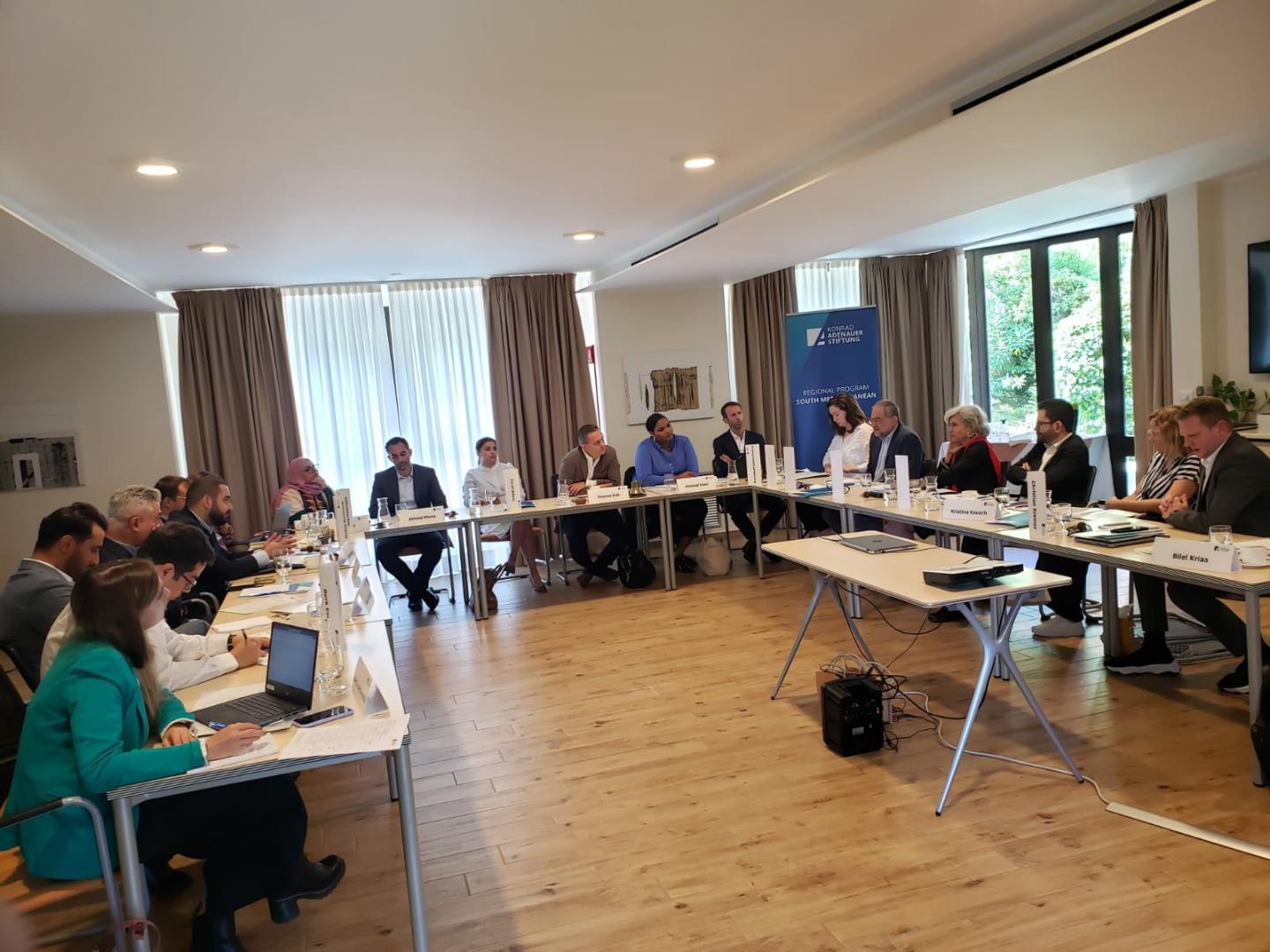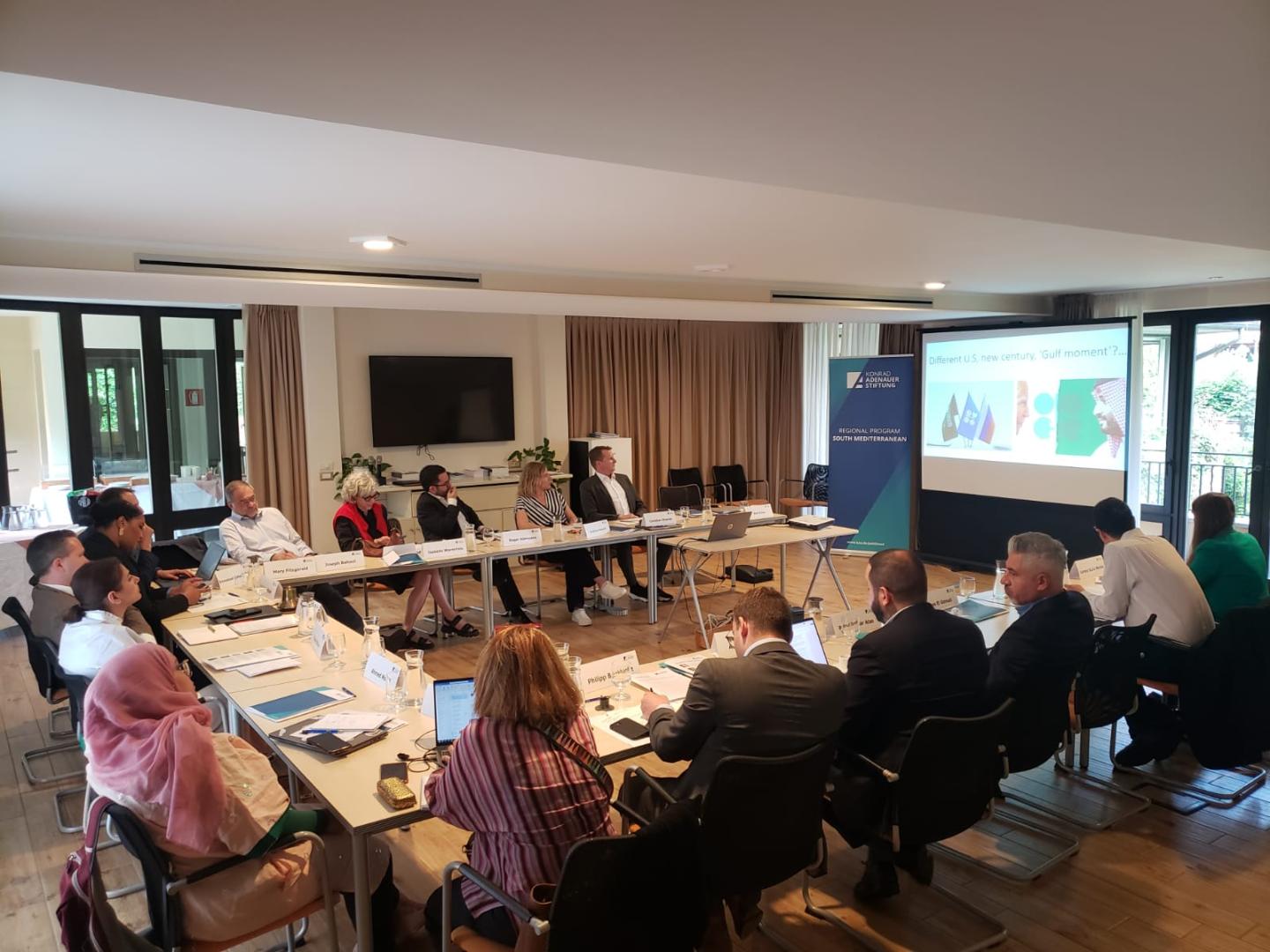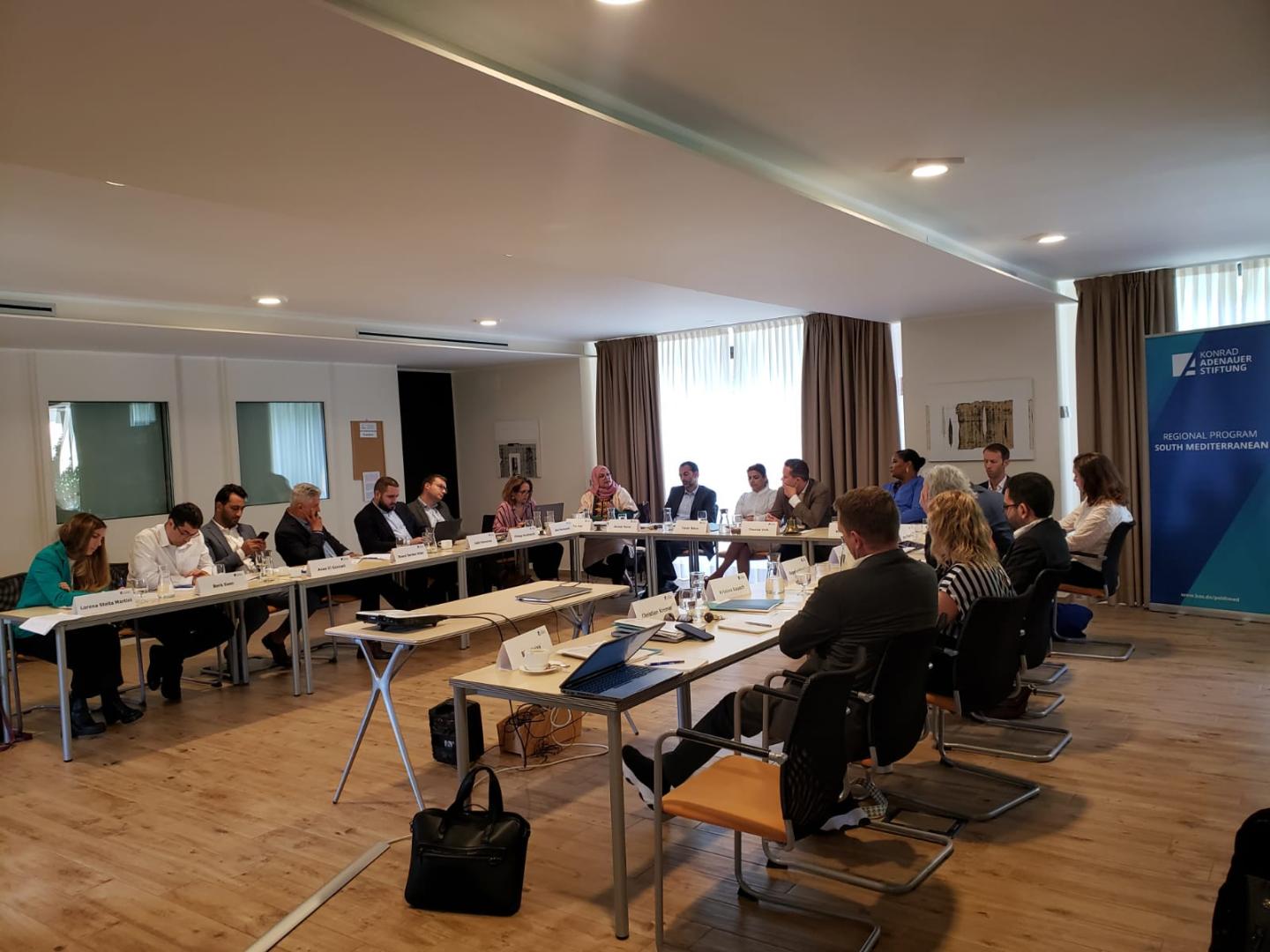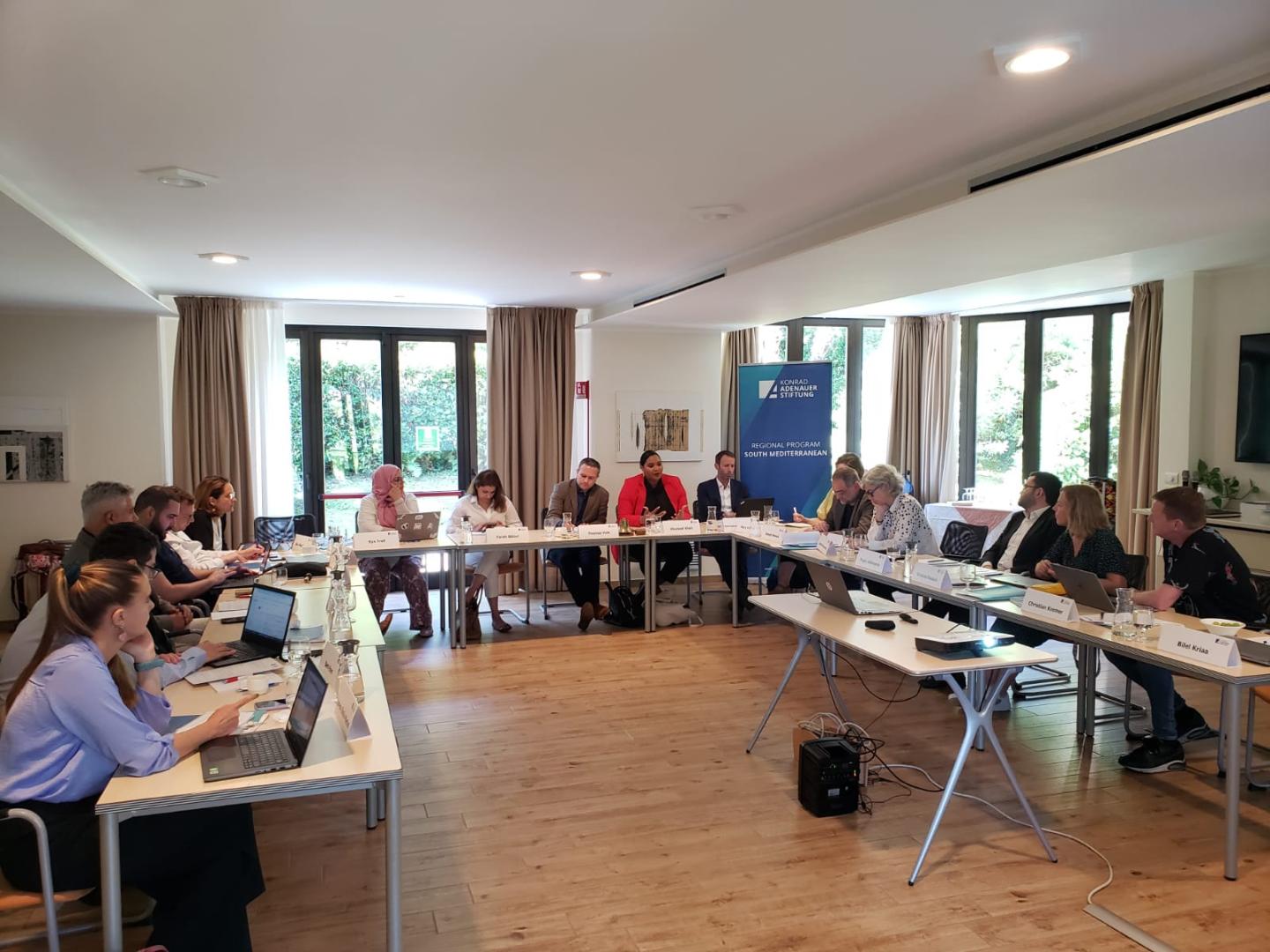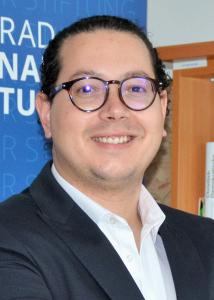Between 5 and 7 July, 2023, the Regional Program Political Dialogue South Mediterranean of the Konrad Adenauer Stiftung (KAS PolDiMed) organized another round of the Mediterranean Advisory Group (MAG) series in Villa La Collina, in Cadenabbia, Italy. The MAG is a network of experts and practitioners from both shores of the Mediterranean, that reviews and analyzes strategic issues in relation to security, foreign policy, economy, and migration in the Mediterranean region. The experts delved deeper into the different approaches and perspectives of the current trends and challenges and put forward a set of policy recommendations to confront them.
As geopolitics are rapidly changing worldwide, the first panel offered insights into the current state of the Euro-Mediterranean security architecture amidst a Russian foreign policy premised on military confrontation. The experts also discussed the importance of adopting new comprehensive frameworks and coordination mechanisms to cope with the complex challenges facing the region such as irregular migration.
The second panel focused on the aggravated socio-economic conditions in the South Mediterranean region. It shed light on the distress that plagued the South Mediterranean economies which resulted in acute social tensions. The whole world felt the impact of Russia’s invasion of Ukraine rocking a global economy that already struggled to recover from the Covid-19 shock. The EU should devote an increasing attention to the festering socio-economic problems that could potentially escalate should the situation remain strategically and properly unaddressed.
The third session stressed the importance to strengthen cooperation between both shores of the Mediterranean Sea in the energy sector, both conventional and renewable, which holds a vast potential for the region, particularly after liberating Europe from the shackles of Russia’s gas. The experts explored the different ways through which the Mediterranean countries could mutually benefit from the burgeoning energy partnerships.
The fourth session was dedicated to unpack the new dynamics and prospects for the EU-Med relations. Amid a recalibration of US engagement, Russia, China, Turkey, and the GCC countries, widely regarded as revisionist actors, are solidifying their involvement in the Mediterranean region. Amidst these developments, an inconsistent EU policy towards its Southern neighborhood calls for more tailored, thorough, and sustainable approaches to the region’s chronic challenges. The Global Gateway Initiative, for instance, deserves reconsideration and further exploration.
In light of the ongoing Russian invasion of Ukraine, and the lingering implications of the Covid-19 pandemic, it becomes evident that the Euro-Med relations need to be revisited for a more stable and prosperous region. Furthermore, a new EU narrative needs to be shaped to address the changing realities of the southern neighborhood.



